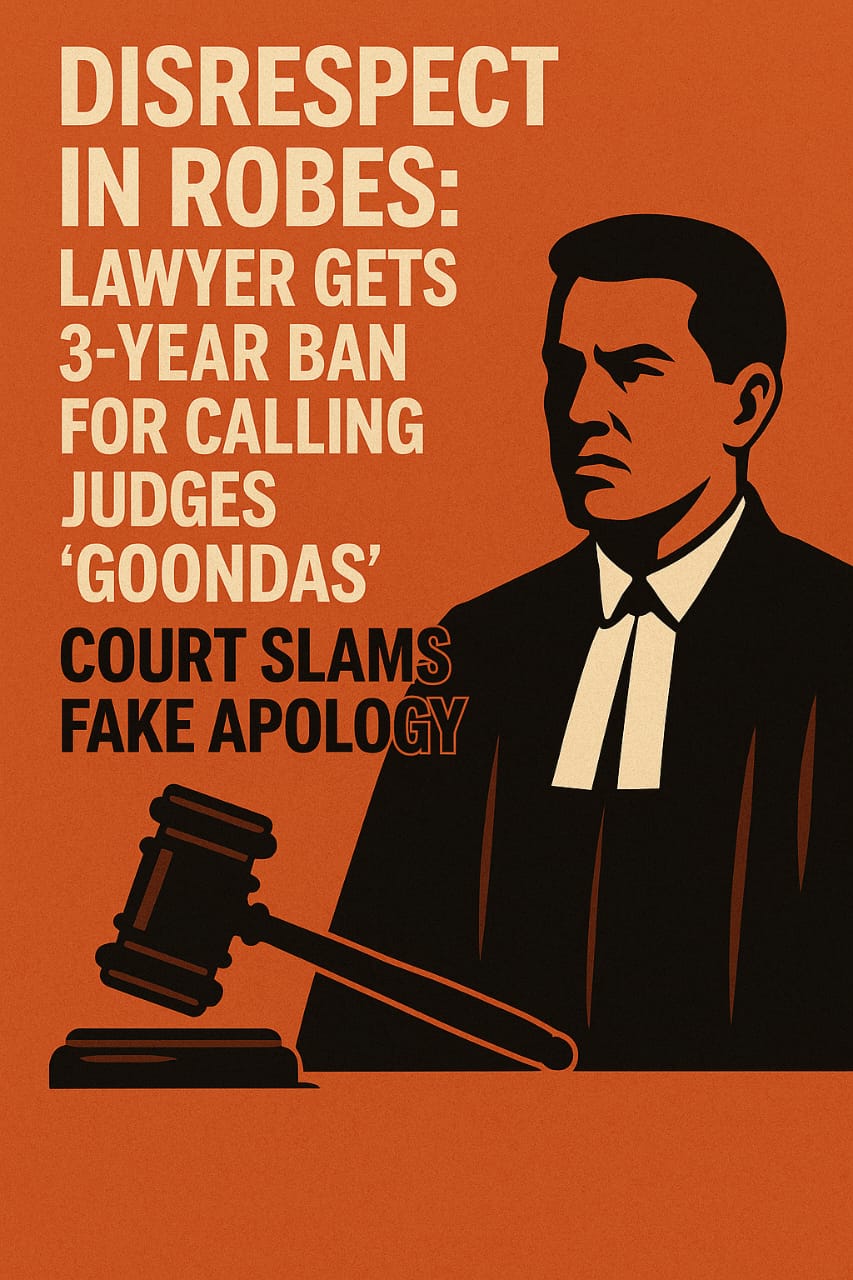A lawyer in India got in trouble for insulting judges in court. He called them “goondas” (a bad word) during a hearing. The court was very upset and stopped the lawyer from practicing law for 3 years. The court said this kind of language is a serious attack on the respect of the judiciary. The lawyer made the comment in open court, causing tension and disrespect. The judges were so upset that they started a special case against the lawyer
The Incident
A lawyer got angry during a court hearing and insulted the judges. He called them “goondas” (meaning thugs or bullies). This shocked everyone in the courtroom. The lawyer first tried to say he was just frustrated, but when the court asked him to apologize, his apology didn’t seem genuine. The court thought he was just trying to avoid punishment, not really sorry. Because of the right we have provided we should not misuse that right and always respect judges either their decision against or favour the lawyers.
Court’s Strong Response
The Allahabad High Court ruled that the legal profession requires not only legal knowledge but also adherence to discipline and respect for the judiciary. The court stated that the advocate’s use of the term “goonda” was a direct attack on the institution’s dignity. The apology offered was deemed insincere, reflecting arrogance rather than remorse. Citing previous judgments, the court emphasized that such behavior undermines public confidence in the justice system.
3-Year Suspension and Broader Implications
The court punished the lawyer by not letting them practice law in India for 3 years. This decision sends a strong message to all lawyers that they need to be respectful and professional in court. The court also wants lawyers to learn about ethics and good behavior through workshops and programs. This is to ensure that lawyers know how to act properly in court.
Legal Community Reacts
The court’s decision has gotten mixed reactions. Some lawyers think it’s a good step to keep courtrooms respectful, while others believe there should be more focus on helping younger lawyers learn and improve. A senior lawyer, Rekha Sharma, said that lawyers should act responsibly and remember to respect the court’s dignity, even when arguing strongly.
Conclusion
This case teaches an important lesson to lawyers: respecting the court is not optional, it’s mandatory. While passion for justice is important, it shouldn’t lead to disrespect. In today’s world, where people are questioning institutions, it’s crucial for courts to maintain their dignity. Being a lawyer requires not just knowledge, but also good character.
About the Author
Sahil writes about law and social issues. He focuses on how courts work, judges’ ethics, and changes in law practice in India. With a background in law and journalism, he gives balanced views on important issues. Sahil believes in respecting institutions while also promoting transparency and accountability. In his free time, he teaches young professionals about law and legal matters.

